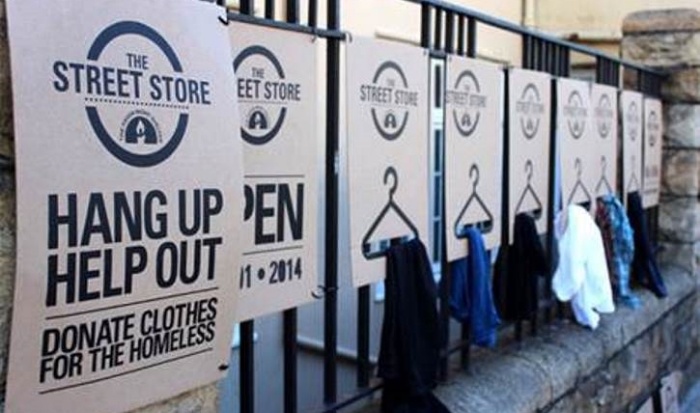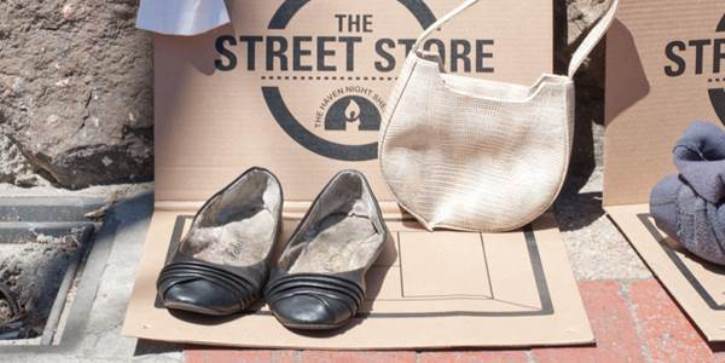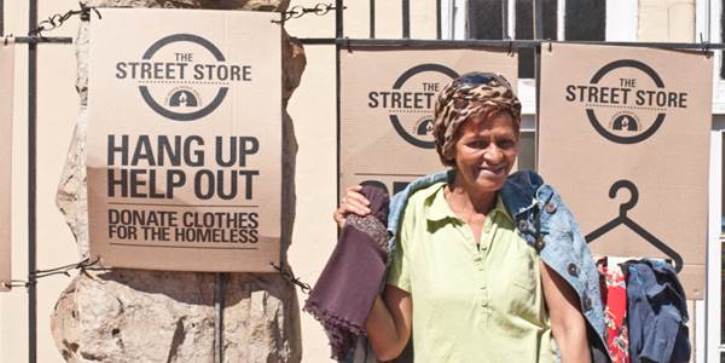This experiential pop-up fashion shop for the homeless in Cape Town has been a viral sensation this week.

This is a great feat for a relatively small activation on the roadside. Its potent message and visuals ensured widespread word of mouth.
We’ve seen an abundance of pop-up shops in our ongoing hunt for great experiential marketing, but The Street Store in Cape Town stands out from the others thanks to its philanthropic nature.
It’s rare that homeless individuals are given a choice when it comes to their wares – the attitude that they should ‘take what they’re given’ is a common one. However, this pop-up fashion store experience from The Street Store doesn’t just clothe the needy at no cost, but it also empowers them with a choice and a subsequent feeling of worth.
The program uses cardboard stands to create the “aisles” in the stores, making it easy to set up shop anywhere. These are imprinted with clothes hanger prints, doubling as fashion displays like in commercial shops. Street Store volunteers act as “retail store consultants”, offering fashion advice to their customers as they try on chosen donated items.
All these little touches from The Street Store enhance the retail experience for the homeless; in granting them this retail experience, the experiential store bridges the gap between the haves and the have-nots.
The Street Store has already reached thousands in the Cape Town area, with over 1000 satisfied homeless customers visiting on their first day in operation.
More charities are adopting experiential techniques to encourage people to support their cause. The visual aspect of this charity campaign is a key tool to its success – physically demonstrating the end-result of donations is an excellent way of encouraging people to donate. Instead of demanding donations with no evidence of where that has gone, this experiential method from The Street Store is successful in helping people to see for themselves where their donations are being put to use.
Take a look at how Hope Soap used experiential: Hope Soap encourages basic personal hygiene in South Africa